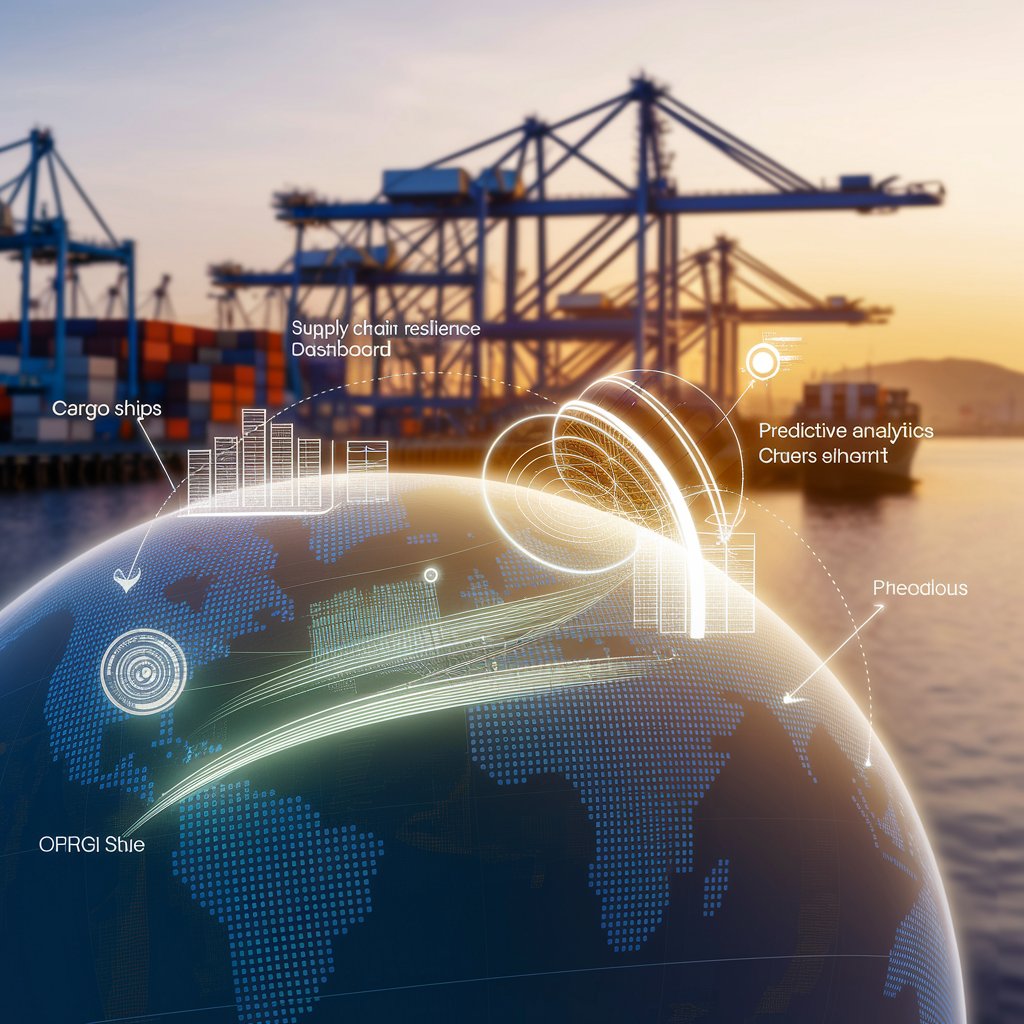Supply Chain Resilience: Building Stronger and Smarter Logistics

Introduction
Supply chain resilience is the strategy that ensures companies can withstand these shocks. By building adaptive, flexible, and technology-driven logistics systems, businesses can maintain continuity, recover faster, and even turn disruptions into opportunities.
What Is Supply Chain Resilience?
Supply chain resilience is the ability of a logistics network to anticipate, absorb, adapt, and recover from disruptions while maintaining performance. It emphasizes flexibility, redundancy, and proactive planning over rigid efficiency.
Resilient supply chains are designed to adjust quickly—whether it’s rerouting shipments, finding alternative suppliers, or reallocating resources.

Key Features of Supply Chain Resilience
- Diversified Sourcing: Reduce dependency on single suppliers or regions.
- Real-Time Visibility: Use digital platforms for proactive disruption monitoring.
- Flexibility: Adjust capacity and routing dynamically.
- Redundancy: Build backup options for critical logistics operations.
- Predictive Analytics: Anticipate risks before they escalate.
Benefits for Logistics Providers
- Continuity: Maintain service levels during disruptions.
- Risk Reduction: Minimize financial and operational impacts.
- Customer Trust: Deliver consistency and reliability even in uncertain times.
- Competitive Advantage: Stand out by ensuring stability when others cannot.
- Sustainability: Design long-term systems that adapt to changing environments.

Real-World Applications
- Freight Forwarders: Reroute shipments quickly during port congestion.
- Carriers: Adjust fleet scheduling to respond to fuel shortages or strikes.
- 3PL Providers: Provide clients with resilience strategies and risk dashboards.
- Retail and E-commerce: Adapt to sudden spikes in demand.
- Cold Chain Logistics: Maintain integrity of sensitive goods during disruptions.
The Future of Supply Chain Resilience
The future of supply chain resilience will be powered by AI, digital twins, and blockchain. AI will forecast risks before they occur, digital twins will simulate entire networks under stress, and blockchain will secure supplier and cargo records. Together, these technologies will create self-healing supply chains that adapt instantly to disruptions without human intervention.

Conclusion
Supply chain resilience is no longer optional—it is essential for survival in global logistics. By diversifying resources, adopting digital tools, and leveraging predictive analytics, companies can safeguard operations against disruptions while maintaining customer trust. For logistics providers, building resilience is not just a defensive strategy—it is the foundation for growth and long-term competitiveness in an unpredictable world.
International Freight Forwarders
International freight forwarders companies work with agents around the globe to provide top quality. With so many transportation and freight forwarding companies vying to get hold of a solid customer share, to win the hearts of your customers you need to go in-depth and understand the service quality reputable freight forwarder companies provide as compared to other mediocre freight companies. One of the most distinguishing features of a leading freight forwarder company is that its makes its customers feel valued.
- A reliable freight forwarding company values its customers business by providing quality services and assistance in a surefire way to satisfy the needs of its customer. They rely most on word of mouth marketing, which is a great way to make sure you get the best service available.
- One of the best ways to become a freight company is to consider and treat your customer like a king. From the first contact down to the very last minute, make them feel that every service you provide is exclusively designed for them and for their benefit.
- Reputable freight forwarding companies make themselves available to their customers. They regularly communicate with their clients from start to finish, providing them continuous support that transpires through every step of the way and lets them win the hearts of their customers.
- An good freight forwarding company offers its customers a free freight quote because every customer wants to take this advantage. Logistics managers make a clear distinction whether and offer their customers a quote that is suitable and without any hidden charges or surprise expenses in the long run.
- A good indication of a reliable freight shipping company is the availability of options that allows customers to make the right decision when it comes to moving their cargo. Dependable and professional freight forwarders who provide a multitude of choices to their customers make it possible to meet their demands as well.

- A reliable freight forwarding company has a good network of custom brokers and reliable freight forwarding agents as well. A shipping company that does not have a substantial, solid network of partners can be problematic as there is risk of mishandling of shipments from the initial stages.
Freight Forwarder Vs. Customs Broker
Many businesses, often beginners, believe that customs brokers and freight forwarders are the same. However, the two are different from each other in terms of functions. While freight forwarders are specialists associated with a supply chain focusing on physical transportation and logistics of a cargo, customs brokers are those professionals who assist traders in meeting the laws and regulations governing import and export.
A Customs broker is a private individual, association or business licensed and regulated by the Customs and can submit essential information and payments to the Customs department on behalf of the clients. It is a specific intermediary between the trader and the government’s customs department in the country. Many freight forwarders can also be customs brokers but no every broker is a freight forwarder.
Freight Forwarder Quaility
These are a few intrinsic qualities of the best freight shipping companies you need to look out for. If you aspire to become the best freight forwarding company you need to inculcate these characteristics and value your customers the most. Make sure to use a good logistic software that is able to help your company with all your freight management and inventory management.


